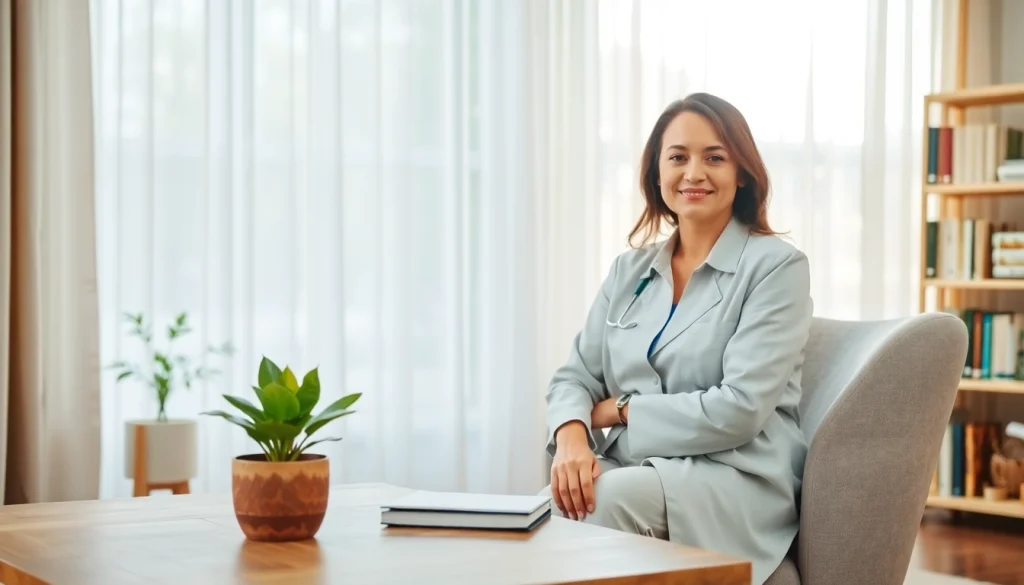1. What is Attachment Theory?
Attachment theory is a psychological and evolutionary framework that explores the dynamics of long-term relationships between humans, particularly focusing on the bonds formed in early childhood between a child and their primary caregivers. Proposed by British psychologist John Bowlby, this theory highlights the importance of these relationships in influencing an individual’s emotional well-being and patterns of behavior in later relationships. Understanding this theory is crucial for those seeking to heal from relationship issues or simply to gain a deeper understanding of their emotional lives. For professional guidance, consider consulting an attachment theory specialist.
1.1 Historical Overview of Attachment Theory
Attachment theory emerged in the mid-20th century as a response to observations and experiments conducted by Bowlby, who noted that children who experienced a secure attachment could navigate the world more confidently. His pioneering work was built on the research of psychoanalysts and behaviorists, while also incorporating elements from evolutionary biology and ethology. Subsequent research by Mary Ainsworth, particularly her ‘Strange Situation’ experiment, categorized attachment styles into secure, anxious, and avoidant, setting the stage for modern understandings of relational dynamics.
1.2 Key Concepts Explained
Central to attachment theory are several key concepts, including:
- Attachment Styles: These styles emerge from early interactions with caregivers and can be categorized into secure, anxious, avoidant, and disorganized. Each style informs how individuals relate to others in their adult lives.
- Internal Working Models: These are mental representations of oneself and others developed from early experiences, influencing expectations and interactions in relationships throughout life.
- Secured Base: The concept of a ‘secure base’ highlights the safety and comfort provided by a caregiver, allowing a child to explore their environment while knowing they have support available.
1.3 Importance of Attachment in Human Relationships
Understanding attachment styles offers profound insights into adult relationships, mental health, parenting styles, and emotional regulation. Those with secure attachments often enjoy healthier relationships and manage stress more effectively, while those with insecure attachments may struggle with anxiety, commitment issues, or trust in relationships. Recognizing these patterns in oneself or partners can lead to deeper empathy and understanding, fostering healthier interactions.
2. Role of an Attachment Theory Specialist
An attachment theory specialist is a mental health professional with specific training and expertise in recognizing and addressing attachment issues that impact relationships. Their work revolves around exploring how an individual’s early attachment experiences affect their current behaviors and relationships.
2.1 Qualifications and Training
Attachment theory specialists typically hold degrees in psychology, social work, or counseling, along with additional training focused on attachment theory and related therapeutic techniques. Many have certifications in modalities such as Emotionally Focused Therapy (EFT), which emphasizes the importance of attachment in emotional regulation and bonding.
2.2 Common Therapeutic Approaches
Specialists often employ a variety of therapeutic approaches to address clients’ needs, including:
- Emotionally Focused Therapy (EFT): This approach focuses on improving attachment bonds and emotional experiences within relationships.
- Attachment-Based Therapy: This modality works directly with clients to explore and address attachment-related issues, facilitating healing and growth.
- Cognitive Behavioral Therapy (CBT): While not based solely on attachment theory, CBT can help individuals reshape negative thoughts stemming from insecure attachment styles.
2.3 Impact on Client Outcomes
The effectiveness of attachment theory specialists is evidenced in various client outcomes. Those who engage in therapy with a focus on attachment often experience significant improvements in emotional regulation, relationship satisfaction, and personal growth. They learn to recognize unhealthy patterns, enhance self-awareness, and develop strategies to build secure, healthier attachments in future relationships.
3. Identifying Attachment Styles
Understanding and identifying one’s attachment style is essential for self-awareness and transformation in relationships. Recognition of these styles can serve as a prelude to further exploration and eventually lead to healthier relational dynamics.
3.1 The Four Main Attachment Styles
There are four primary attachment styles, each with distinct characteristics:
- Secure: Individuals with a secure attachment style feel comfortable with intimacy and interdependence. They have a positive view of themselves and others, which fosters healthy relationships.
- Anxious: Those with an anxious attachment style often seek constant reassurance and have a fear of abandonment. They may exhibit clingy behaviors or hypersensitivity to relationship dynamics.
- Avoidant: Avoidant individuals tend to distance themselves from emotional intimacy. They may prioritize independence and find it challenging to trust or rely on others.
- Disorganized: This style is associated with inconsistent behavior and is often a combination of anxious and avoidant traits. It typically arises from traumatic childhood experiences.
3.2 Recognizing Attachment Behaviors
Identifying attachment behaviors in oneself and others is vital for improving relational dynamics. Common behaviors associated with each attachment style include:
- Secure: Effective communication, trust, and balanced emotional expression.
- Anxious: Frequent need for reassurance, overanalyzing partner’s behavior, and heightened emotional responses.
- Avoidant: Emotional distance, reluctance to share feelings, and discomfort with closeness.
- Disorganized: Erratic behavior patterns, fear of closeness, and difficulty regulating emotions.
3.3 How Attachment Styles Affect Relationships
Understanding how attachment styles influence relationships is paramount. For example, individuals with anxious attachments may find themselves in a perpetual cycle of seeking validation and fearing rejection, which can often push partners away. Conversely, avoidantly attached individuals may feel overwhelmed by a partner’s emotional needs, leading to conflict and distance. Recognizing these styles is the first step towards cultivating better communication and understanding within relationships.
4. Benefits of Consulting an Attachment Theory Specialist
Engaging with an attachment theory specialist can provide significant benefits for individuals seeking to improve their emotional health and relationship dynamics. The focused expertise these professionals offer allows for tailored therapeutic interventions.
4.1 Personal Growth and Healing
Therapy with an attachment specialist encourages personal growth by addressing unresolved emotional wounds stemming from childhood experiences. Through this process, individuals can develop greater self-awareness, emotional regulation skills, and a stronger sense of identity.
4.2 Enhanced Relationship Dynamics
Working with an attachment specialist can lead to improved communication styles and healthier dynamics in existing relationships. Clients often learn to express their needs effectively, navigate conflicts more gracefully, and foster deeper connections with partners, friends, and family members.
4.3 Developing Healthier Attachments
Ultimately, an attachment theory specialist aids clients in discovering how to cultivate healthier attachments moving forward. This includes developing secure attachment behaviors and addressing patterns of anxiety or avoidance that may hinder relationship satisfaction.
5. Finding the Right Attachment Theory Specialist
Choosing the right attachment theory specialist is a critical step in the healing process. It involves careful consideration of various factors and asking the right questions to ensure alignment with your personal objectives.
5.1 Questions to Ask Potential Therapists
When seeking the right specialist, consider asking:
- What is your training and experience in attachment theory?
- What therapeutic approaches do you utilize in your practice?
- Can you describe a typical session focused on attachment issues?
- How do you measure progress in therapy?
- What is your approach to managing complex attachment issues?
5.2 Resources for Locating Specialists
Resources to find an attachment theory specialist include online therapist directories, psychology professional organizations, or referrals from healthcare providers or trusted individuals. Websites like Psychology Today provide filters to search based on specific needs and professional expertise.
5.3 Understanding Costs and Insurance Coverage
It is essential to inquire about therapy costs, payment options, and whether the specialist accepts insurance. Many therapists may offer sliding scale fees based on income, making therapy more accessible. Being informed about costs ahead of time helps prevent any financial stress during the therapeutic process.








